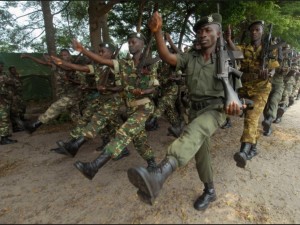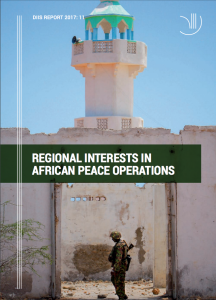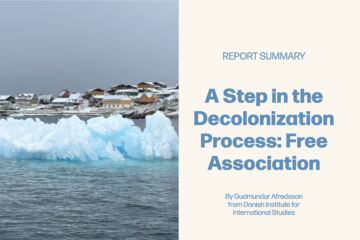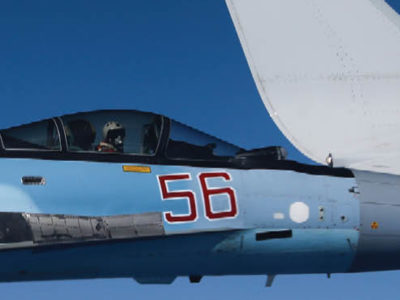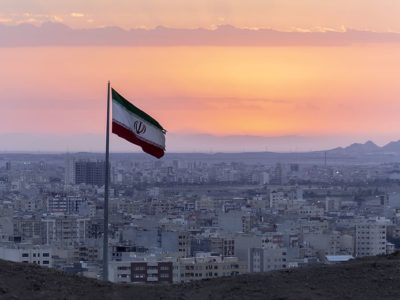Regional Interests in African Peace Operations
DIIS Report by: Adam Moe Fejerskov, Signe Cold-Ravnkilde, and Peter Albrecht
The DIIS report titled “Regional Interests in African Peace Operations” provides a detailed description of peace mission operations in Africa, and how the regional and national interests of different stakeholders are shaping these operations as well as their potential success. The two main peace operations the report describes are the African Union Mission in Somalia (AMISOM), and the United Nations Multidimensional Integrated Stabilization Mission in Mali (MINUSMA). In this manner, the report provides insight into how both African interests as well as international (mostly European) interests are driving these peace missions and what that means for the future of the African continent.
The report explores the differences between African Union (AU) and United Nations (UN) missions, and tries to understand what the challenges can be of including and relying on regional and neighboring countries to support the missions. This concern arises because each region and individual countries have differing, often conflicting, interests than each other, which can ultimately be the drivers of their willingness to participate in the peace missions. At the moment, about half of all UN peace-keepers are African soldiers. Common interests as well as conflicts among regional partners create a complex environment where the strategic nature of the missions is at risk. On the other side, European countries’ concerns over terrorism, organized crime and illegal migration have led to the funding and capability upgrading of African militaries.
In this manner, the report talks about cooperation strategies as well as the potential risk of that each region or stakeholder might create competing security architectures that might further debilitate the mission in Mali. The guiding question of the report thus is “What are the operational consequences of increasingly including and even relying on regional and neighboring countries to contribute to a mission?” International players have shown a lack of willingness to directly participate in the missions, that is, countries like Kenya, Ethiopia, Niger and Chad are the ones bearing the burden of contributing with personnel. Yet, there is the concern of how each of these countries individual interests might affect or reshape the peace missions.
The authors conclude that a deeper understanding of the regional interests shaping the operational effectiveness of both AMISOM and MINSUMA is necessary to move forward. Particularly, they argue that the UN is in need of a new and more coherent strategy for MINUSMA where the competing structures are addressed in order to combat terrorism and security concerns. In other words, they advise that deciding to support a mission is just as important as the understanding of how to do so.
Read more here:
